Today, no one associates Louis Poulsen with being a wine importer. But in 1874, the story was very different. Back then, Ludvig R. Poulsen founded the company under the name "Kjøbenhavns direkte Vin-Import-Kompagni" (The Copenhagen Direct Wine Import Company). However, more than 140 years later, Louis Poulsen is known as a world-famous Danish manufacturer of designer lamps.
The Louis Poulsen lighting range
Louis Poulsen is best known for its famous classic lamps by renowned designers, including Vilhelm Lauritzen, Verner Panton, Arne Jacobsen and Poul Henningsen. The latter set the ball rolling for Louis Poulsen in 1924 when his work was showcased at the Paris Exposition Internationale des Arts Decoratifs & Industriels Modernes.
Today, Louis Poulsen is never too far from stylish living spaces and countless commercial locations, like the breathtaking showroom of Carl Hansen & Søn or the restaurant Langelinie Pavillonen in Copenhagen, for which the PH Artichoke lamp was designed.
In general, many designs have been developed for a specific lighting task in a professional environment. New building projects always posed and still pose new challenges for the designers of Louis Poulsen - challenges they never fail to overcome.
Designers and classics from Louis Poulsen
Whether it’s about the lamps of Louis Poulsen or the designers' names, everyone has probably heard of them at some point. with their functional, versatile yet striking design, will trigger fond memories.
Names like Arne Jacobsen, Poul Henningsen or Verner Panton are well-known greats from the design world. And this also applies to the newcomers, Clara von Zweigbergk, Oki Sato and Christian Flindt. 'Being a designer still means being curious, trying things out and trying to make them better', Christian Flindt revealed in a past interview with Lights.ie, showing a similar pioneering spirit that already distinguished Poul Henningsen.
The world of Poul Henningsen
The mother of Poul Henningsen, born in 1894, was the Danish writer Agnes Henningsen. Her son Poul followed in his father’s footsteps by becoming a journalist and writer.
However, in the minds of design lovers, he is best known as a legendary lighting designer. Today, his designs are viewed as classic, functional, simple but unique. In the past, however, he was considered an unconventional thinker with a rebellious streak. Why?
Because in his time, his designs broke with tradition that refused to bow to the status quo. One example is his legendary three-screen system of the PH 3/2 from 1927, which avoids glare all along the line and is a true innovation for the living room.
Poul Henningsen worked for Louis Poulsen all his life. Even after his death in 1967, his works are among the hottest and best known in the history of lighting.
Design classics by Poul Henningsen
PH Artichoke
This pendant lamp was designed in 1958 for the Langelinie Pavillonen restaurant in Copenhagen. Its main feature is the 72 leaves for symmetrical, glare-free light.
PH 5
This classic for living rooms, restaurants and hotels was also designed in 1958. The pendant light was created in response to frequent changes in the shape and size of incandescent bulbs.
PH 3/2
This legendary table lamp is now available in an amber Limited Edition, in honour of Louis Poulsen's 125th birthday.
The world of Vilhelm Lauritzen
Vilhelm Lauritzen (1894-1984) was one of the most important Danish architects in history and a pioneering exponent of Danish functionalism. He designed the Nørrebro Teater (1931-1932), the Daells Varehus department store (1928-1935), the Danish Radio Building (1936-1941) and Copenhagen's first airport (1937-1939).
His lamps and buildings embody the essence of what we now understand by the term 'modern' - and have done since the 1930s.
Lauritzen also designed some excellent lamps - for example, for the Danish Radio Building, which he designed too. Today, these lights are known under the names VL38 and VL45.
VL45 Radiohus
This pendant light was designed in the 1940s for the Danish radio building. Its features are the brass suspension and the three-layer mouth-blown glass.
VL38 floor lamp
This floor lamp was also part of the furnishings of the Danish Radio Building. Its retro flair and soft, curved expression are its hallmarks.
VL38 table lamp
The VL38 table lamp is a true Vilhelm Lauritzen classic. It provides the best light on a desk and is a stylish home accessory for real design lovers.
The world of Verner Panton
The works of the Danish designer and architect Verner Panton are an expression of his experimental vein, and his collaboration with Louis Poulsen began in 1959.
His lights could be called 'psychedelic' because of the strong colours and the fantasy in the design. Yet his lights are functional and graphically clear despite all the finesse. But what this legendary man is really known for is the Panthella.
The Panthella was to play a special role in a large exhibition called 'Light and Colours' at the Trapholt Design Museum in Kolding. Sadly, the great Vernor Panton, who had planned the entire exhibition as a coherent work of art, didn’t live to see it himself. He died in 1998, shortly before the opening, but his work lives on.
Panthella floor lamp
The Panthella series was created in 1971 and owes its unbroken popularity to its organic form. It’s a striking and yet discreet lamp that never looks dated.
Panthella Mini Chrome
The chrome version of the table lamp gives the Panthella from 1971 a modern, almost futuristic touch while keeping its distinctive shape.
Panthella Mini
The mini version of the Panthella is even more versatile. It has come in a variety of colours since 1998 to present the life's work of Verner Panton in the exhibition 'Light and Colours'.
The world of Arne Jacobsen
Arne Jacobsen was an architect and one of the design greats. In 1927, he graduated from the Royal Danish Academy of Art in Copenhagen. He soon built a reputation with designs that include the National Bank and SAS Royal Hotel & Terminal in Copenhagen and St. Catherine's College in Oxford.
In addition to entire buildings, he also designed cutlery, door handles, bathroom fittings, fabrics, wallpaper patterns - and, of course, lamps.
The AJ table lamp is also a movie star, having featured in many science fiction films. Boasting minimalist, clean lines, it's the epitome of Jacobsen’s style and is still popular today, 60 years after it was first released. Proof that he was a true master of his craft.
Eklipta
This wall lamp was made in 1959 for the town hall in Rødovre. Later it also appeared in St. Catherine's College. Today, the light can often be found as an architectural icing on the cake.
AJ table lamp
Perhaps Arne Jacobsen's most famous model was created in 1960 for the SAS Royal Hotel in Copenhagen (Radisson Blu). Today, the lamp is considered a design classic in the Louis Poulsen style.
AJ outdoor wall light
The outdoor version of the AJ model was used in the SAS Royal Hotel too. In private outdoor areas, this striking wall light immediately shows the impeccable style and taste of the occupant.





































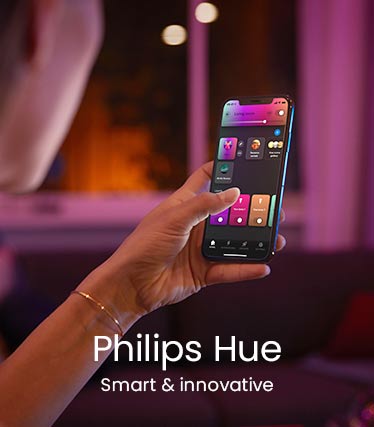




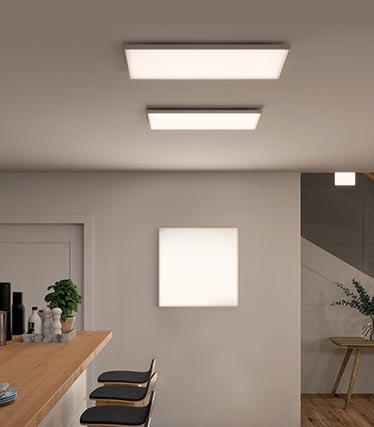









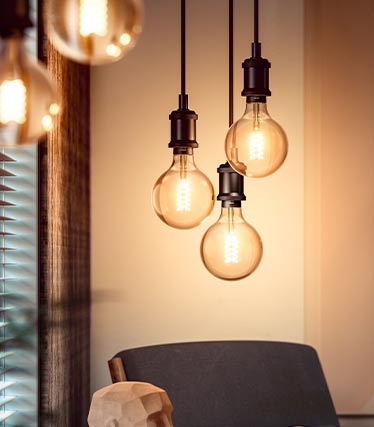












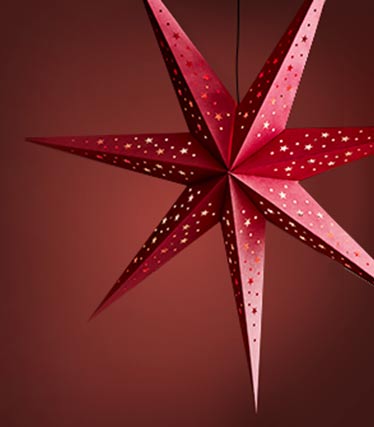

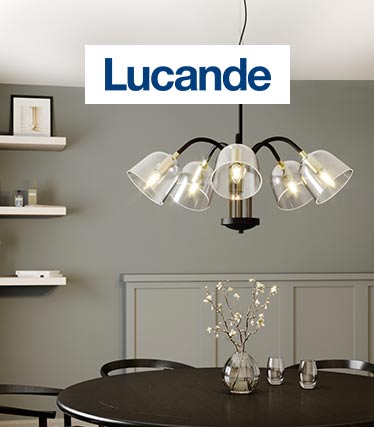


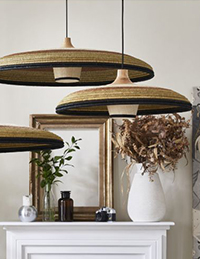

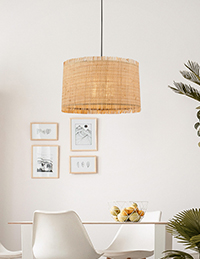
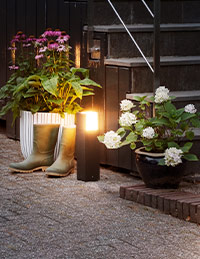










)
:format(jpeg))
:format(jpeg))
:format(jpeg))
:format(jpeg))
:format(jpeg))
)
)
:format(jpeg))
)
)
)
:format(jpeg))
)
)
)
:format(jpeg))
)
)
)
:format(jpeg))
)
)
)